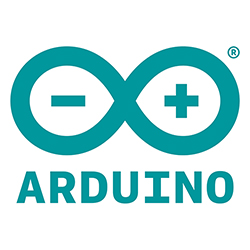Technical Document
Specifications
Brand
ArduinoProduct Name
MKR1000 WiFi
Kit Classification
Development Board
Processor Part Number
ATSAMD21G18A
Country of Origin
Italy
Product details
The Arduino MKR1000 with Headers(171-1858)and without Headers(169-7583)
The Arduino MKR1000 is a development board based on the Atmel ATSAMW25 SoC. The MKR1000 is a combination of the Arduino Zero and the Arduino WiFi Sheild boards.
Two Versions Available:
ABX00004 (171-1858) - with Headers
ABX00011 (169-7583) - without Headers
Who is it for?
The Arduino MKR1000 is perfect for those who are newer to networking. Use the MKR1000 to set up you IoT projects with WiFi connectivity with ease. The Arduino website has tonnes of resources on “Getting Started” with your board. If you are ever stuck, or have a question, the Arduino community is there for support.
What is the ATSAMW25?
The ATSAMW25 is a System on Chip (SoC) which comes from the family of SmartConnect devices from Atmel. The ATSAMW25 is made up of three main blocks:
• SAMD21 Cortex-M0+ 32bit low power ARM MCU
• WINC1500 low power 2.4GHz IEEE® 802.11 b/g/n Wi-Fi
• ECC508 CryptoAuthentication
Features:
ATSAMW25
Digital I/O Pins: 8
PWM Pins: 12
Analogue Input Pins: 7 (ADC)
Analogue Output Pins: 1 (DAC)
1 x UART
1 x SPI
1 x I2C
External Interrupts: 8
FLASH Memory: 256 KB
SRAM: 32 KB
Warning
This board runs at 3.3V (unlike most Arduino boards) Applying voltages over 3.3V to an I/O pin might damage the board.
Arduino Shields & Add-On Boards
Our range of shields and add-on boards can add the extra functionality you need by attaching on top of or plugging into an Arduino board. Functionality ranges from adding motion sensing, power management, motors and displays to connecting your devices via Ethernet, GSM, WiFi and USB. There are also options for more flexible prototyping.
AED 190.84
AED 190.84 Each (ex VAT)
AED 200.38
AED 200.38 Each (inc. VAT)
1
AED 190.84
AED 190.84 Each (ex VAT)
AED 200.38
AED 200.38 Each (inc. VAT)
1
Stock information temporarily unavailable.
Please check again later.
Technical Document
Specifications
Brand
ArduinoProduct Name
MKR1000 WiFi
Kit Classification
Development Board
Processor Part Number
ATSAMD21G18A
Country of Origin
Italy
Product details
The Arduino MKR1000 with Headers(171-1858)and without Headers(169-7583)
The Arduino MKR1000 is a development board based on the Atmel ATSAMW25 SoC. The MKR1000 is a combination of the Arduino Zero and the Arduino WiFi Sheild boards.
Two Versions Available:
ABX00004 (171-1858) - with Headers
ABX00011 (169-7583) - without Headers
Who is it for?
The Arduino MKR1000 is perfect for those who are newer to networking. Use the MKR1000 to set up you IoT projects with WiFi connectivity with ease. The Arduino website has tonnes of resources on “Getting Started” with your board. If you are ever stuck, or have a question, the Arduino community is there for support.
What is the ATSAMW25?
The ATSAMW25 is a System on Chip (SoC) which comes from the family of SmartConnect devices from Atmel. The ATSAMW25 is made up of three main blocks:
• SAMD21 Cortex-M0+ 32bit low power ARM MCU
• WINC1500 low power 2.4GHz IEEE® 802.11 b/g/n Wi-Fi
• ECC508 CryptoAuthentication
Features:
ATSAMW25
Digital I/O Pins: 8
PWM Pins: 12
Analogue Input Pins: 7 (ADC)
Analogue Output Pins: 1 (DAC)
1 x UART
1 x SPI
1 x I2C
External Interrupts: 8
FLASH Memory: 256 KB
SRAM: 32 KB
Warning
This board runs at 3.3V (unlike most Arduino boards) Applying voltages over 3.3V to an I/O pin might damage the board.
Arduino Shields & Add-On Boards
Our range of shields and add-on boards can add the extra functionality you need by attaching on top of or plugging into an Arduino board. Functionality ranges from adding motion sensing, power management, motors and displays to connecting your devices via Ethernet, GSM, WiFi and USB. There are also options for more flexible prototyping.

